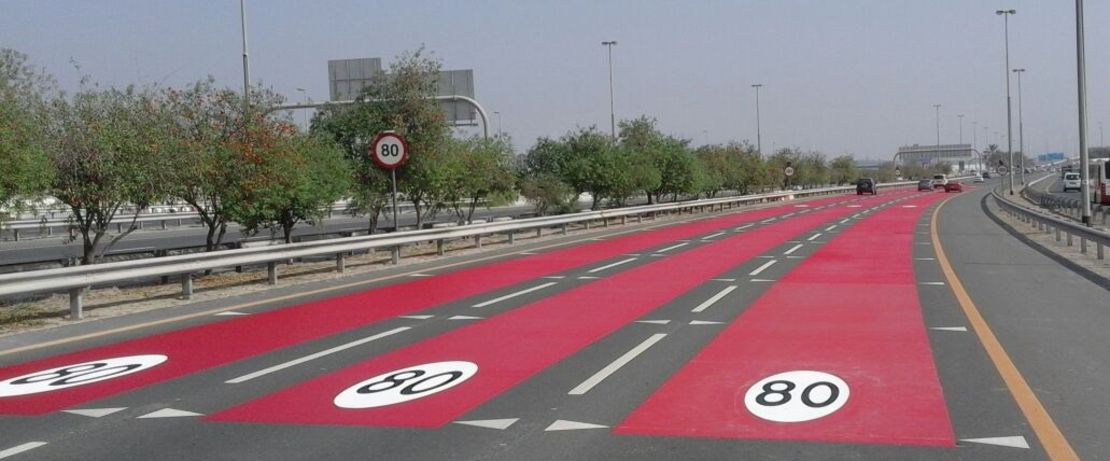
Dubai Uses Evonik's DEGAROUTE® to Beat the Dust on Road Markings
Climate and environment pose tough conditions for road markings in the Middle East. The sand, oil and hot temperatures typically cause road markings to blacken quickly. In cooperation with a local partner, Evonik’s Road Marking team is going to solve this problem.
What do horizontal speed limit signs at Saada Bridge have in common with triangular yellow humps and zebra markings on Cairo Street in the city of Dubai? All are DEGAROUTE® based cold plastic MMA road markings with anti-blackening capabilities. On behalf of Dubai's Road & Transport Authority (RTA), Evonik was testing a new system of road markings that will greatly reduce the problem of fading of crosswalks and other safety markings in arid areas such as Dubai in the United Arab Emirates (UAE).
The UAE have one of the most progressive transportation infrastructures in the entire Middle East region - and much sand. This leads quite often to problems: After a relatively short time, road markings are too dirty to be visible - and blackened road markings threatens road safety. In wet climates, rain helps to wash off the dirt on the road markings, but this does not happen in the UEA.
Evonik’s Road Marking team from Hanau has taken up the challenge and worked on a solution to beat the dirt on Arab road markings. Together with its cooperation partner Prismo Gulf, an Abu Dhabi paint manufacturer, a special road marking system was designed. The proposed solution was a cold plastic based on DEGAROUTE® that is hardened by the chemical reaction of two materials. It then receives a thin top coat of a vanish-type material as protection.
With traditional thermoplastic markings used in the Gulf states today laid next to it for comparison, the new system was tested in selected areas in Dubai. The impressive result: Less than 12 hours after both materials had been laid, there was already a remarkable difference in appearance between the products, which became even more obvious after several weeks. "The new coating produces a much harder material than thermoplastic, reducing the chance of sand and dirt becoming embedded in it. Also it is much more durable", sais Peter Reinhard, Business Director Middle East, Africa & India. The next steps foward will be discussed with RTA officials shortly.
